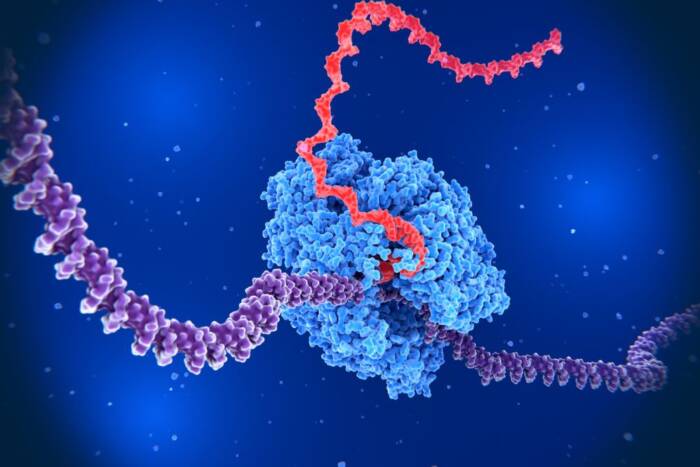Biological clock scientist takes on VP for Academic Affairs position at Rockefeller University on March 1
Rockefeller University scientist Michael W. Young, who investigates the genetic pathways that enable the body’s biological clock to tick, will become Rockefeller University’s Vice President for Academic Affairs on March 1.
“Mike Young has the respect of everyone at Rockefeller as a scientist, leader, mentor and citizen of the university,” says Nobel laureate Paul Nurse, the university’s president, who made the appointment.
Young, who heads one of the university’s major laboratories, will continue his highly regarded research program on the body’s circadian rhythm when he takes on the responsibilities of mentoring tenure track faculty and advising Nurse on scientific planning and operations.
“I don’t plan on pulling back on my research, because first and foremost that’s why I’m at Rockefeller,” said Young, who is professor and head of the Laboratory of Genetics. “I also think a functioning scientist has much more to offer to this new post.”
Young, who is setting aside his service on committees and task forces at the university and other organizations to make time for the V.P. position, was attracted to the job because “Rockefeller University has never been stronger, so it will be exciting to work closely with Paul and the faculty in planning for the university’s next 10 years. In addition to the prominence of our senior faculty, there has been strong growth in our tenure track faculty who have brought a variety of new ideas and approaches to the university and the recognition from outside that they can thrive here,” he added.
This year, in addition to naming Young to the senior administrative position, Nurse has recruited the highly regarded neuroscientist, Cornelia Bargmann, to the Rockefeller University faculty. In January, Nurse, who became president last fall, announced that Bargmann, now at the University of California at San Francisco, would join the over 70-member Rockefeller faculty later this year.
Young will succeed Stephen Burley, who resigned in December 2001 for a new position at Structural GenomiX, Inc., a San Diego, Calif., biotech company. A search to fill the vacancy was put on hold in February 2002, when Arnold Levine resigned as university president.
Born and raised in Miami, Florida, Young received the Ph.D. degree in 1975 from the University of Texas in Austin and completed postdoctoral studies at Stanford University School of Medicine in Palo Alto. Joining Rockefeller University in 1978 as one of the then new university fellows, Young was promoted to associate professor in 1984 and to professor in 1988.
Young’s research has revealed that the body’s internal clock regulates much more than its sleep schedule. “Genes that run on internal clocks are involved in body temperature control, hormone production, blood pressure, learning, memory and pain, and the clocks themselves run autonomously in most tissues, not just in the brain,” explained Young.
“These clocks also appear to be relevant to poorly understood human behavioral disorders such as depression. Humans use orthologs of the genes we’ve discovered in the fly clock to organize their circadian rhythms, so naturally we’ve begun to expand our research to vertebrates. For better or worse, its not just flies anymore.”
Young and his Rockefeller colleagues have identified several genes in the fruit fly that work in tandem to tightly control the insect’s 24-hour body clock. Studies have shown that the genes and proteins governing the fly’s biological clock play a similar role in humans.
Young and his wife Laurel Eckhardt, a professor of biology at Hunter College, have two teenage daughters, Natalie and Arissa.


